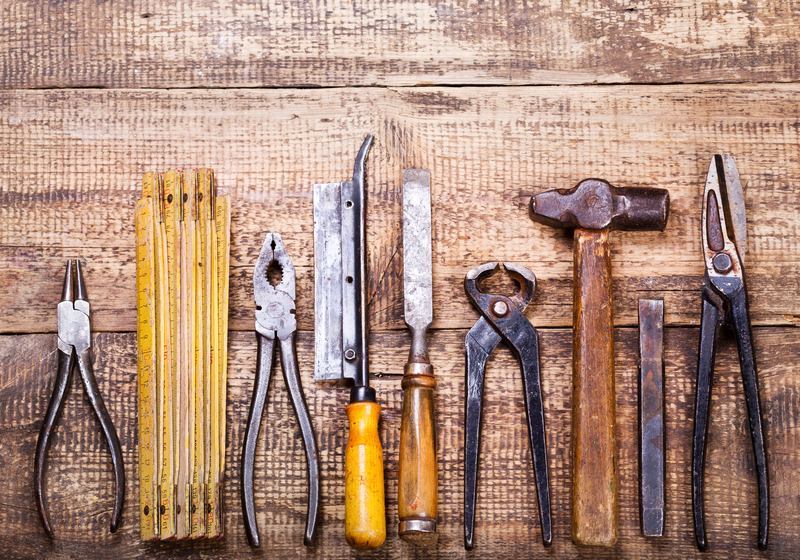Low-Cost Bulky Waste Disposal Alternatives You Need to Try
Bulky waste disposal is a common problem for households and businesses alike. Old furniture, appliances, mattresses, and other large items are difficult to move, hard to dispose of, and can quickly clutter your space. Fortunately, there are several low-cost bulky waste disposal alternatives that are both cost-effective and environmentally responsible. In this comprehensive guide, we'll explore a variety of options you need to try, each designed to save you money while efficiently managing your unwanted items.
What Is Bulky Waste?
Before diving into the alternatives, it's important to define what qualifies as bulky waste. This term refers to items that are too large or heavy to be collected via regular household trash services. Common examples include:
- Beds and mattresses
- Sofas and armchairs
- Wardrobes and cabinets
- White goods (refrigerators, washing machines, stoves)
- Garden furniture
- Large toys and recreational equipment
Disposing of these items in a regular landfill or through traditional garbage pick-up can be costly. Luckily, there are many alternative disposal methods that are both affordable and sustainable.

Why Choose Low-Cost Alternatives for Bulky Waste Disposal?
There are several convincing reasons to consider budget-friendly bulky waste removal solutions:
- Cost-saving -- Avoid high fees charged by waste disposal companies or municipal collection services.
- Environmental Impact -- Many low-cost methods divert items from landfills, reducing pollution and conserving resources.
- Community Benefits -- Donating or sharing bulky items can support people in need.
- Flexibility -- You can schedule removal at your convenience, instead of waiting for bulk collection days.
With these advantages in mind, let's explore your options!
Top Low-Cost Bulky Waste Disposal Alternatives
1. Donate to Charities or Local Organizations
Donating unwanted large items to organizations is one of the best alternatives to costly waste pick-ups. Many charities accept furniture, appliances, and even electronic devices. Not only does this reduce waste, but it also helps individuals or families in need.
- Furniture banks often collect gently-used beds, dressers, and sofas for clients transitioning out of homelessness.
- Organizations like Habitat for Humanity ReStores accept appliances, building materials, and household goods.
- Local shelters and community centers may need items such as mattresses or tables.
Before donating, always call ahead to confirm that your items are acceptable and check if a free pick-up service is available. Some groups even offer a tax deduction for your donation!
2. Host a Neighborhood Bulk Waste Pickup Day
If your city doesn't provide regular bulky item collection, consider organizing a neighborhood bulk waste event. By pooling resources, you can share the cost of a dumpster or a local waste removal service. This group approach offers several benefits:
- Volume Discounts -- Disposal services often provide better rates for larger loads.
- Community Engagement -- Neighbors can swap items instead of throwing them away.
- Convenience -- Schedule pick-up times that work for everyone.
This is one of the most effective alternatives to standard bulky waste disposal for households on a budget.
3. Sell or Give Away Items Online
Websites and mobile apps dedicated to secondhand goods are a convenient way to dispose of bulky waste for free or even profit. Platforms to try include:
- Facebook Marketplace
- Craigslist
- OfferUp
- Freecycle -- an entirely free, neighbor-to-neighbor network
Upload clear photos and descriptions of your bulky items to attract interested buyers or takers. You can choose to give items away at no cost or sell them to offset your own disposal costs. This is a sustainable, zero-cost bulky waste removal alternative.
4. Use Municipal Drop-Off Centers
Many cities and counties operate public facilities where residents can drop off large items at minimal or no cost. These bulky waste transfer stations are designed for easy unloading and may accept:
- Furniture
- Appliances (sometimes with a small surcharge for refrigerants)
- Electronics and scrap metal
- Mattresses and box springs
Be sure to check your local government's website for rules and hours. This approach is especially affordable if you only have a few items to dispose of.
5. Repurpose or Upcycle Bulky Items
Getting creative with bulky item disposal can save money and add value to your home. Instead of throwing out old furniture, consider:
- Turning an old dresser into a TV stand or storage bench
- Upcycling pallets or headboards for garden use
- Refinishing chairs or tables for resale
- Using appliance parts for DIY projects
Many online tutorials offer step-by-step guides to repurposing common household items. This strategy is not only free, but also fosters sustainability.
6. Hire a Man-With-a-Van or Local Hauler
For large or especially heavy items that can't be hauled away in your own vehicle, a local "man-with-a-van" service can be very affordable. These independent haulers typically charge less than national junk removal companies and often offer flexible scheduling.
- Negotiate a flat fee or per-item rate
- Ask about bulk discounts for multiple items
- Check if they recycle or donate items
This is a practical and low-cost bulk waste disposal method when dealing with a small load.
7. Arrange Large Item Pick-Up with Your Municipality
Many municipalities offer at least one or two free annual bulky waste pickups for residents. Check your waste management company or local government's website to:
- Register your pickup request
- Learn about permissible items
- Schedule your collection day
While not always entirely free, this is often far less expensive than private disposal options.
8. Partner with Scrap Metal Collectors
If you have discarded appliances, barbecue grills, or metal bed frames, consider contacting a scrap metal recycling service. Many local collectors will pick up bulky metal waste at little or no charge because they profit by recycling the metal.
- Ensure appliances are emptied of hazardous materials
- Remove non-metal attachments when possible
- Search online for reputable local collectors
This alternative both saves you money and supports recycling.
How to Prepare Bulky Waste for Low-Cost Disposal
Whatever budget-friendly bulky waste disposal method you choose, preparation is key to hassle-free removal:
- Disassemble large items when possible to reduce weight and save space.
- Clean items to ensure safety for donation or transfer.
- Separate materials (wood, metal, electronics, textiles) for easier recycling or reuse.
- Take clear photos if listing online for sale or giveaway.
- Label items clearly when leaving them for curbside collection or group pick-ups.
Key Considerations When Choosing a Bulky Waste Disposal Alternative
- Costs involved -- Always confirm whether there are any charges for pick-up, drop-off, or recycling.
- Environmental impact -- Opt for alternatives that divert items from landfills and promote reuse or recycling.
- Convenience -- Consider how much effort is required to transport or prepare each item.
- Legal restrictions -- Some areas have regulations around leaving bulky items on the curb or in shared dumpsters. Always check local ordinances.
What to Avoid When Disposing of Bulky Waste
- Don't dump large items illegally; it can lead to fines and environmental harm.
- Avoid placing dangerous items like hazardous chemicals or batteries in bulky waste streams.
- Never block sidewalks, driveways, or streets with discarded items.

Frequently Asked Questions about Low-Cost Bulky Waste Disposal Alternatives
Are there any completely free bulky waste disposal options?
Yes! Donating to local charities, using Freecycle, listing items as "curb alerts" online, or calling scrap collectors can all result in free bulky item removal.
How can I transport bulky waste without a truck?
If you don't have access to a large vehicle, consider borrowing from a friend, renting a truck for a few hours, or teaming up with neighbors to share transportation costs.
Can I leave my old mattress or fridge on the curb?
This depends entirely on your municipality's rules. Some cities have scheduled pick-up days, while others require a special request. Leaving items out improperly can result in fines, so always check first.
What's the most environmentally friendly way to dispose of bulky waste?
Reuse and recycling are the best options. Donating, upcycling, or delivering items to recycling centers significantly lowers landfill waste.
Final Thoughts: Saving Money and the Planet
Getting rid of unwanted large items doesn't have to drain your wallet or harm the planet. By considering these cost-effective bulky waste disposal alternatives, you can:
- Keep usable items out of landfills
- Support community members or charities
- Save big on removal costs
- Embrace creative DIY solutions
Remember, the best waste is the waste that never happens. Before replacing furniture or appliances, ask yourself if it can be repaired, refurbished, or given new life elsewhere. If not, you now have a complete toolkit of affordable bulky waste removal solutions to keep your home clutter-free, your budget intact, and your environmental footprint small.
Try these low-cost bulky waste disposal alternatives today and make both your wallet and your community a little greener!
